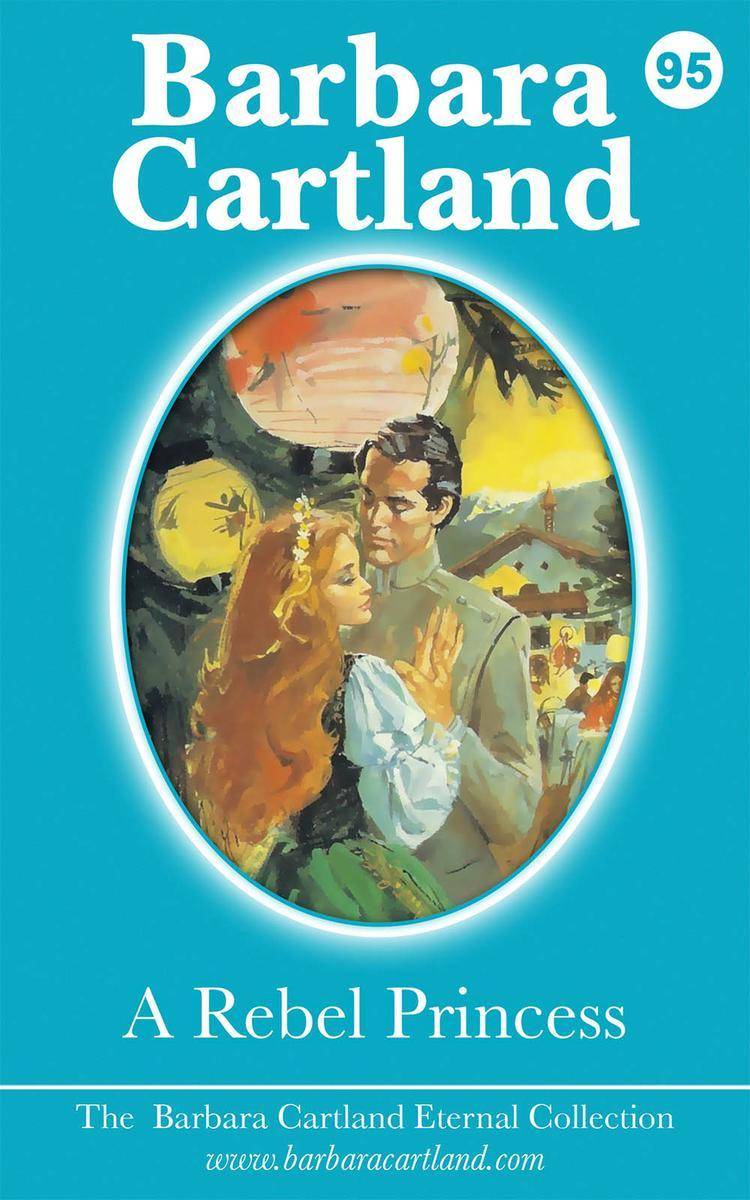
95. A Rebel Princess
¥24.44
When her father, the Grand Duke, tells the lovely young Princess Tora of Radoslav that she is to marry the aged King of Salona, she is appalled and horrified. But no amount of pleading by her will change her father's mind. So Tora decides that she must find a way to see her prospective husband without his being aware of her presence and then try to find a way to escape her awful Fate. Since she is a talented musician, she has little difficulty in persuading her dear friend, Professor Lazar Srejovic, the nation's greatest musician, to allow her to join his famous quartet for a concert at the King of Salona's Palace. She devises a cunning plan to escape from the Palace of Radoslav, so that her father cannot stop her and joins up secretly with the Professor's quartet to travel by carriage to Maglic, the Capital of Salona. But on arriving at an inn on the way disguised in peasant dress, she is terrified to unexpectantly overhear a sinister plot to murder and violently overthrow the King of Salona and seize his country by force. Her life is now in danger, but, when a dashing and handsome stranger comes to her rescue when she is hiding in a wood near the inn, she loses her heart to him utterly in a moment and just as quickly loses all hope that they can ever be together. And her future is sealed for ever with no hope of love and happiness.

A Packhorse Called Rachel
¥24.44
A story of courage, fear and defiance based on the authors own personal experience. A Pack Horse Called Rachel is the remarkable tale of a young woman, half Jewish, caught in the extraordinarily brutal world of France in 1944. Rachel moves through the pages of the book with her faithful dog Nourse, touching lives as her work with the Maquis based in the Auvergne takes her perilously close to danger on a day to day basis.The story is based on personal experience, the de*ion of historical events is as true as memory will allow, it is an elegantly written story capturing first hand Kellermann’s painful and lonely life as a resistance fighter within the ‘Maquis’, amidst the harsh beauty of the Auvergne. Beset by the freezing cold climate prevailing in winter, the Vichy traitors amongst the normal French Population and the hostility of ordinary people afraid for their own lives. Rachel overcomes the initial animosity and mistrust of the lecherous and alcoholic farmer Raboullet on whom she comes to rely; the wrath of the Gestapo, the betrayal of St Pré, a full and passionate love affair, tragic loss and yet she survives. Marcel Kellermann notes, with de*ive talent, and intricate detail that only someone especially observant could recall. From the opening raid to the closing trial, the book gives an incisive view, as we understand the mind and soul of the resistance better with each page. This is the story of a young woman paralleled with the struggle of a nation as it regains its courage to fight back.

BMW 5 & 6 Series E12 - E24 - E28 -E34 Restoration Tips and Techniques
¥24.44
A wealth of restoration tips and techniques covering E12, E24, E28, E34, 5 and 6 Series BMWs built between 1972 and 1995. Covers all models from 518 to M6. Advice is given on acquiring a good 5 & 6 Series model, plus tips on restoring, engines, bodywork, trim, electrics, suspension & much more.

BMW E30 - 3 Series Restoration Guide
¥24.44
A practical restoration manual written by journalist and E30 enthusiast Andrew Everett. Covers E30 models: 316, 316i, 318i, 320i, 323i, 325i, 325e, 324d and 324td, 318iS, M3 & Alpina in saloon, convertible & touring forms. Professional advice also is given on buying a good used model E30 for restoration.

Wexford's Wild Heritage
¥24.44
Think of Ireland and what comes to mind. Forty shades of greenThis ancient mystic land is much more colourful than that - with a stunning variety of flora and fauna waiting to be enjoyed. And Co. Wexford, located in the southeast corner of the island, is particularly rich in its diversity of wildlife and habitats. Bordered by a mountain range on its western flank and by seas to the east and south, Co Wexford is a feast for the senses - with spectacular coastlines and islands, rolling hills, rich patchwork countryside, rugged cliffs, ever changing sand-dune systems, brackish lagoons, large estuaries and meandering streams and rivers. Come with us and explore all this natural beauty in 'Wexford's Wild Heritage'. This book encompasses the locations visited and the wildlife experienced by Alan, Chris and Don during a year-long recording of a radio series. Page after colourful page features wonderful wildlife photos and unique artwork. The images speak for themselves with just a smattering of explanatory text to help with locations and identifications. You don't have to be Irish to appreciate and enjoy 'Wexford's Wild Heritage, a wildlife book produced by people like yourself with a love for the natural world. The enthusiastic people who contributed their time and knowledge to help us achieve our goal made our journey through the seasons even more enjoyable. We express our sincere gratitude to you all. Based on 'Wexford's Wild Heritage', a twenty-five part Radio Series grant-aided by the Broadcasting Authority of Ireland and broadcast by South East Radio this publication brings together some of the natural wildlife delights of Co. Wexford. The opportunity for the Wildside Team to explore Co. Wexford, which is not only steeped in history, but can boast such rich and varied landscapes, was a tremendous privilege. There are many un-spoilt areas to discover that are a feast for the senses - stunning coastlines and islands, rolling hills, rich patchwork countryside, rugged cliffs, ever changing sand-dune systems, brackish lagoons, large estuaries and meandering streams and rivers. And it is the flora and fauna, both resident and migrant, to be found in these habitats that we have tried to encompass within the pages of this book. The twelve months we spent visiting as many locations as we could around the County happened to coincide with some of the wettest and coldest weather on record for decades. In spite of this we had some wonderful wildlife encounters -- from the top of Mount Leinster to the rocky outcrop of Hook Head, from Camolin Woods to the Ballyteigue Dunes, from the Slaney to Great Saltee - our yearlong journey through Co. Wexford's seasons was inspirational. The enthusiastic people who contributed their time and knowledge to help us achieve our goal made that journey easier and more enjoyable. We express our sincere gratitude to you all. Lets hope this book will encourage you to get out and discover more of what our amazing County has to offer -- Wexford's Wild Heritage.

Karmalitics
¥24.44
In his pacey, darkly humorous first novel, Duncan Abbott doesn't pull any punches. With a searing eye for satire and a great deal of comic ingenuity he proposes some startling new political ideas at a time when paucity of thought and poverty of ideals seem to be the norm. Join our hero George King, a talented, popular and ethical MP, and his cadre of madcap idealists as they saunter amusingly through the sordid side of parliament changing the nation as they go! Watch them improve the lives of millions, sweep away swathes of avarice and laugh in the face of adversity, while tearing down a sex, drugs and prostitution-based blackmail campaign that could bring down British politics as we know it.
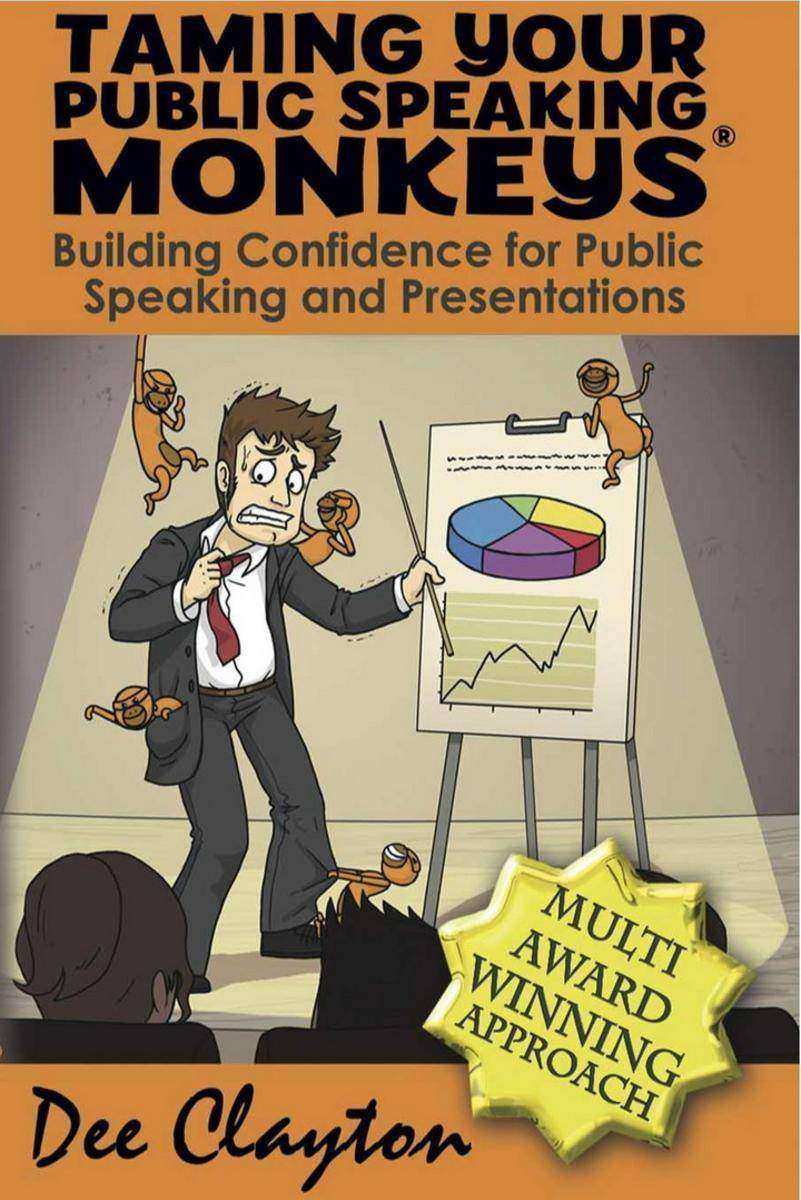
Taming Your Public Speaking Monkeys
¥24.44
A Godsend for anyone who’s ever suffered that dread of speaking in public!’ If, like almost everyone, you’re petrified of public speaking, the last thing you want is a lecture! And there lies the brilliance of this unique book’s genuinely innovative approach to the issue: Dee Clayton makes the process of overcoming those negative voices in your head (Your ‘Public Speaking Monkeys!’) and becoming an effective speaker lighthearted and fun! A Godsend for anyone who’s ever suffered that dread, Dee’s refreshingly simple yet amazingly effective multiawardwinning approach has already helped thousands to overcome their fears and become effective and confident public speakers. Significantly, the author’s keenly aware that for most of us, effective public speaking isn’t necessarily an end in itself but a means to other ends for example Dee has already helped company directors to persuade more successfully, doctors to win more funding, mediators to influence international decisions and all kinds of business people to fulfil their potential. What’s more, this is a genuinely practical guide! Unlike most ‘self help’ books on the topic (or any other), this one doesn’t just tell you what to do; in her chatty, good-humored style, Dee explains exactly how, sharing her own experiences and coaxing the reader through a programme that doesn’t just work it even makes public speaking enjoyable! Taming Your Public Speaking Monkeysworks so well because its easy, enjoyable style is underpinned by Dee’s solid, real-life experience of speaking publicly to tens of thousands of people first in her highly successful twenty-year marketing career (communicating for UK household brands such as Jacob’s Creek, Pizza Hut and Jammie Dodgers to name but a few) and now as a public speaking training specialist. Equally vitally, the book draws heavily upon the NeuroLinguistic Programming (NLP) techniques and insights in which Dee is a highly experienced Trainer and Master Practitioner. Taming your Public Speaking Monkeysis a rare find: a self-help book that really helps and best of all the results come to you quickly and stick with you for life!

Unity Virtual Reality Projects
¥71.93
Explore the world of Virtual Reality by building immersive and fun VR projects using Unity 3D About This Book Learn the basic principles of virtual reality applications and get to know how they differ from games and desktop apps Build various types of VR experiences, including diorama, first-person characters, riding on rails, 360 degree projections, and social VR A project-based guide that teaches you to use Unity to develop VR applications, which can be experienced with devices such as the Oculus Rift or Google Cardboard Who This Book Is For If you’re a non-programmer unfamiliar with 3D computer graphics, or experienced in both but new to virtual reality, and are interested in building your own VR games or applications then this book is for you. Any experience in Unity is an advantage. What You Will Learn Create 3D scenes with Unity and Blender while learning about world space and scale Build and run VR applications for consumer headsets including Oculus Rift and Google Cardboard Build interactive environments with physics, gravity, animations, and lighting using the Unity engine Experiment with various user interface (UI) techniques that you can use in your VR applications Implement the first-person and third-person experiences that use only head motion gestures for input Create animated walkthroughs, use 360-degree media, and build multi-user social VR experiences Learn about the technology and psychology of VR including rendering, performance and VR motion sickness Gain introductory and advanced experience in Unity programming with the C# language In Detail What is consumer “virtual reality”Wearing a head-mounted display you view stereoscopic 3D scenes. You can look around by moving your head, and walk around using hand controls or motion sensors. You are engaged in a fully immersive experience. On the other hand, Unity is a powerful game development engine that provides a rich set of features such as visual lighting, materials, physics, audio, special effects, and animation for creating 2D and 3D games. Unity 5 has become the leading platform for building virtual reality games, applications and experiences for this new generation of consumer VR devices. Using a practical and project-based approach, this book will educate you about the specifics of virtual reality development in Unity. You will learn how to use Unity to develop VR applications which can be experienced with devices such as the Oculus Rift or Google Cardboard. We will then learn how to engage with virtual worlds from a third person and first person character point of view. Furthermore, you will explore the technical considerations especially important and possibly unique to VR. The projects in the book will demonstrate how to build a variety of VR experiences. You will be diving into the Unity 3D game engine via the interactive Unity Editor as well as C-Sharp programming. By the end of the book, you will be equipped to develop rich, interactive virtual reality experiences using Unity. So, let's get to it! Style and approach This book takes a practical, project-based approach to teach specifics of virtual reality development in Unity. Using a reader-friendly approach, this book will not only provide detailed step-by-step instructions but also discuss the broader context and applications covered within.

Boost.Asio C++ Network Programming - Second Edition
¥54.49
Learn effective C++ network programming with Boost.Asio and become a proficient C++ network programmer About This Book Learn efficient C++ network programming with minimum coding using Boost.Asio Your one-stop destination to everything related to the Boost.Asio library Explore the fundamentals of networking to choose designs with more examples, and learn the basics of Boost.Asio Who This Book Is For This book is for C++ Network programmers with basic knowledge of network programming, but no knowledge of how to use Boost.Asio for network programming. What You Will Learn Prepare the tools to simplify network programming in C++ using Boost.Asio Explore the networking concepts of IP addressing, TCP/IP ports and protocols, and LAN topologies Get acquainted with the usage of the Boost libraries Get to know more about the content of Boost.Asio network programming and Asynchronous programming Establish communication between client and server by creating client-server application Understand the various functions inside Boost.Asio C++ libraries to delve into network programming Discover how to debug and run the code successfully In Detail Boost.Asio is a C++ library used for network programming operations. Organizations use Boost because of its productivity. Use of these high-quality libraries speed up initial development, result in fewer bugs, reduce reinvention-of-the-wheel, and cut long-term maintenance costs. Using Boost libraries gives an organization a head start in adopting new technologies. This book will teach you C++ Network programming using synchronous and asynchronous operations in Boost.Asio with minimum code, along with the fundamentals of Boost, server-client applications, debugging, and more. You will begin by preparing and setting up the required tools to simplify your network programming in C++ with Boost.Asio. Then you will learn about the basic concepts in networking such as IP addressing, TCP/IP protocols, and LAN with its topologies. This will be followed by an overview of the Boost libraries and their usage. Next you will get to know more about Boost.Asio and its concepts related to network programming. We will then go on to create a client-server application, helping you to understand the networking concepts. Moving on, you will discover how to use all the functions inside the Boost.Asio C++ libraries. Lastly, you will understand how to debug the code if there are errors found and will run the code successfully. Style and approach An example-oriented book to show you the basics of networking and help you create a network application simply using Boost.Asio, with more examples for you to get up and running with Boost.Asio quickly.

Microsoft Dynamics NAV 2015 Professional Reporting
¥107.90
Discover tips and trick for Dynamics NAV report building About This Book Create and customize reports in Dynamics NAV 2015 using RDLC, Word, Power BI, and Reporting Services Work with different elements in the toolbox such as tablix, which can be used as a List, Table, or Matrix and understand the differences between them and when to use which This book is a pragmatic guide with clear instructions and real-world examples to teach you about the reporting capabilities of Dynamics NAV 2015 Who This Book Is For If you are a consultant, developer, customer, user, or just interested in the reporting capabilities of Dynamics NAV, then this book is for you. Basic knowledge of Dynamics NAV will be helpful. What You Will Learn Understand why reports are designed in a specific way and then apply this knowledge to your advantage Develop document reports using different techniques Apply filtering and sorting, and create groups Use RDLC to visualize information Visualize information, KPIs, and trends using expressions, Gauges, Charts, Data bars, Indicators, and Spark lines Create and optimize your dataset for RDLC and for Word layouts Use Power BI with Dynamics NAV to bring your data to life Build Reporting Services reports on top of Dynamics NAV In Detail Microsoft Dynamics NAV is a multi-lingual, multi-currency business management solution that organizations use to manage their accounts, supply chain, sales, payroll, and HR. It is an ERP tool for organizations that is fast to implement, easy to configure, and simple to use. It is widely used because simplicity is a part of its development, product design, usability, and implementation. This book will help you to master, analyze, and deliver the most challenging reporting requirements in Dynamics NAV 2015. The book starts by explaining report development and it's different phases such as data model, layout, and testing you go through. It introduces you to RDLC and the different controls in the toolbox, such as the Tablix, in its many forms. You will learn to use expressions to make your layout dynamic and to overcome typical problems. Moving on, the book will teach you to visualize data and be able to understand and read a report as it is intended. You will also learn to use Microsoft Word to create a layout for a report. With Power BI and Power Pivot, Power View, and Power Map, you will learn how easy and powerful it is to bring your data to life, so you can spot trends and perform in depth analysis of your business. Reporting Services is also explained as another way that you can apply the knowledge you have about RDLC to build RDL layouts outside of Dynamics NAV. By the end, you will create different types of charts so you can visualize key performance indicators inside the Dynamics NAV application. Style and approach This book is an essential guide in to understanding what is involved in creating reports in Dynamics NAV and its reporting capabilities.

Java Hibernate Cookbook
¥80.65
Over 50 recipes to help you build dynamic and powerful real-time Java Hibernate applications About This Book Learn to associate JDBC and Hibernate with object persistence Manage association mappings, implement basic annotations and learn caching Get to grips with Hibernate fundamentals from installation to developing a business application with this step-by-step guide Who This Book Is For This is book for Java developers who now want to learn Hibernate. Good knowledge and understanding of Java is preferred to allow efficient programming of the core elements and applications; it would be helpful if readers are familiar with the basics of SQL. What You Will Learn Set up and install Hibernate on your system and explore different ways in which Hibernate can be configured Learn the basic concepts and fundamentals of Java Hibernate Define mappings without a use of XML file using Annotations Persist collection elements such as list, map, set and array Explore the various mapping options and learn to work with Hibernate associations Understand advanced Hibernate concepts such as caching and inheritance Develop an engaging and robust real-world hibernate application based on a common business scenario Integrate Hibernate with other frameworks to develop robust enterprise applications In Detail Hibernate is a database independent technology, so the same code will work for all databases. It helps a Java developer write a query by mapping Java bean to database tables and help create tuned queries that boost performance. Even with limited SQL knowledge one can easily perform database operations. This makes the development faster and more accurate than JDBC. Hibernate supports useful features like connection pooling, caching, and inheritance etc. This book will provide a useful hands-on guide to Hibernate to accomplish the development of a real-time Hibernate application. We will start with the basics of Hibernate, which include setting up Hibernate – the pre-requisites and multiple ways of configuring Hibernate using Java. We will then dive deep into the fundamentals of Hibernate such as SessionFactory, session, criteria, working with objects and criteria. This will help a developer have a better understanding of how Hibernate works and what needs to be done to run a Hibernate application. Moving on, we will learn how to work with annotations, associations and collections. In the final chapters, we will see explore querying, advanced Hibernate concepts and integration with other frameworks. Style and approach This book is a practical guide filled with carefully organized step-by-step instructions. All recipes are arranged in an easy-to understand and clear manner allowing you to apply the solutions to other situations.

Troubleshooting Ubuntu Server
¥80.65
Make life at the office easier for server administrators by helping them build resilient Ubuntu server systems About This Book Tackle the issues you come across in keeping your Ubuntu server up and running Build server machines and troubleshoot cloud computing related issues using Open Stack Discover tips and best practices to be followed for minimum maintenance of Ubuntu Server 3 Who This Book Is For This book is for a vast audience of Linux system administrators who primarily work on Debian-based systems and spend long hours trying fix issues with the enterprise server. Ubuntu is already one of the most popular OSes and this book targets the most common issues that most administrators have to deal with. With the right tools and definite solutions, you will be able to keep your Ubuntu servers in the pink of health. What You Will Learn Deploy packages and their dependencies with repositories Set up your own DNS and network for Ubuntu Server Authenticate and validate users and their access to various systems and services Maintain, monitor, and optimize your server resources and avoid tremendous load Get to know about processes, assigning and changing priorities, and running processes in background Optimize your shell with tools and provide users with an improved shell experience Set up separate environments for various services and run them safely in isolation Understand, build, and deploy OpenStack on your Ubuntu Server In Detail Ubuntu is becoming one of the favorite Linux flavors for many enterprises and is being adopted to a large extent. It supports a wide variety of common network systems and the use of standard Internet services including file serving, e-mail, Web, DNS, and database management. A large scale use and implementation of Ubuntu on servers has given rise to a vast army of Linux administrators who battle it out day in and day out to make sure the systems are in the right frame of operation and pre-empt any untoward incidents that may result in catastrophes for the businesses using it. Despite all these efforts, glitches and bugs occur that affect Ubuntu server's network, memory, application, and hardware and also generate cloud computing related issues using OpenStack. This book will help you end to end. Right from setting up your new Ubuntu Server to learning the best practices to host OpenStack without any hassles. You will be able to control the priority of jobs, restrict or allow access users to certain services, deploy packages, tackle issues related to server effectively, and reduce downtime. Also, you will learn to set up OpenStack, and manage and monitor its services while tuning the machine with best practices. You will also get to know about Virtualization to make services serve users better. Chapter by chapter, you will learn to add new features and functionalities and make your Ubuntu server a full-fledged, production-ready system. Style and approach This book contains topic-by-topic discussion in an easy-to-understand language with loads of examples to help you take care of Ubuntu Server. Plenty of screenshots will guide you through a step-by-step approach.

Mastering Python Scientific Computing
¥71.93
A complete guide for Python programmers to master scientific computing using Python APIs and tools About This Book The basics of scientific computing to advanced concepts involving parallel and large scale computation are all covered. Most of the Python APIs and tools used in scientific computing are discussed in detail The concepts are discussed with suitable example programs Who This Book Is For If you are a Python programmer and want to get your hands on scientific computing, this book is for you. The book expects you to have had exposure to various concepts of Python programming. What You Will Learn Fundamentals and components of scientific computing Scientific computing data management Performing numerical computing using NumPy and SciPy Concepts and programming for symbolic computing using SymPy Using the plotting library matplotlib for data visualization Data analysis and visualization using Pandas, matplotlib, and IPython Performing parallel and high performance computing Real-life case studies and best practices of scientific computing In Detail In today's world, along with theoretical and experimental work, scientific computing has become an important part of scientific disciplines. Numerical calculations, simulations and computer modeling in this day and age form the vast majority of both experimental and theoretical papers. In the scientific method, replication and reproducibility are two important contributing factors. A complete and concrete scientific result should be reproducible and replicable. Python is suitable for scientific computing. A large community of users, plenty of help and documentation, a large collection of scientific libraries and environments, great performance, and good support makes Python a great choice for scientific computing. At present Python is among the top choices for developing scientific workflow and the book targets existing Python developers to master this domain using Python. The main things to learn in the book are the concept of scientific workflow, managing scientific workflow data and performing computation on this data using Python. The book discusses NumPy, SciPy, SymPy, matplotlib, Pandas and IPython with several example programs. Style and approach This book follows a hands-on approach to explain the complex concepts related to scientific computing. It details various APIs using appropriate examples.

VMware vRealize Orchestrator Essentials
¥80.65
Get hands-on experience with vRealize Orchestrator and automate your VMware environment About This Book Gain an in-depth understanding of vRO in the VMware infrastructure Create your own advanced vRO *s using JavaScript A step-by-step tutorial to manage and create workflows with vRO Who This Book Is For This book is for VMware vSphere administrators who have minimal experience with automation tools and want to learn how to effectively automate their environment with VMware vRealize Orchestrator. A basic understanding of the VMware vSphere terms and concepts would be helpful. What You Will Learn Familiarize yourself with the Orchestrator architecture and Explore how plugins can expand Orchestrator's capabilitiesExplore how plug-ins can expand Orchestrator’s capabilities Deploy and configure the vRealize Orchestrator appliance Schedule and run workflows using the vSphere Web Client Create your own workflows with minimal work Use workflow presentations to improve your automation projects Integrate JavaScript to enhance your workflows Debug your workflows for errors and fix them Learn how to create, import, and export packages, to enable easy exchange solutions with others In Detail The automation of virtual environments has become the focus of many endeavors. VMware vRealize Orchestrator is a tool that enables you to automate not only your VMware environments, but also the surrounding hardware and software infrastructure. Orchestrator is also a central tool in the VMware cloud initiative and is extensively used by products such as vRealize Automation. In this book, you will learn how Orchestrator is able to help you automate your complete VMware infrastructure as well as its surrounding hardware and software. After deploying and configuring the vRealize Orchestrator appliance, you will learn how to run the existing workflows that are a part of the Orchestrator library. You will also see how the vSphere Web Client integration of Orchestrator reduces the time you spend on your daily admin tasks. The main aspect here is to learn how to create new workflows from existing ones. You will also look at how you can create completely new workflows. This includes learning about JavaScript and using presentation features to improve the layout and user friendliness of your workflows. Toward the end, you will learn to check for errors in your workflows and debug them. By the time you're done with the book, you'll be proficient in managing your workflows. Style and approach This book follows a sequential approach with ample screenshots in the examples that convey a deeper understanding of all Orchestrator-related tasks.
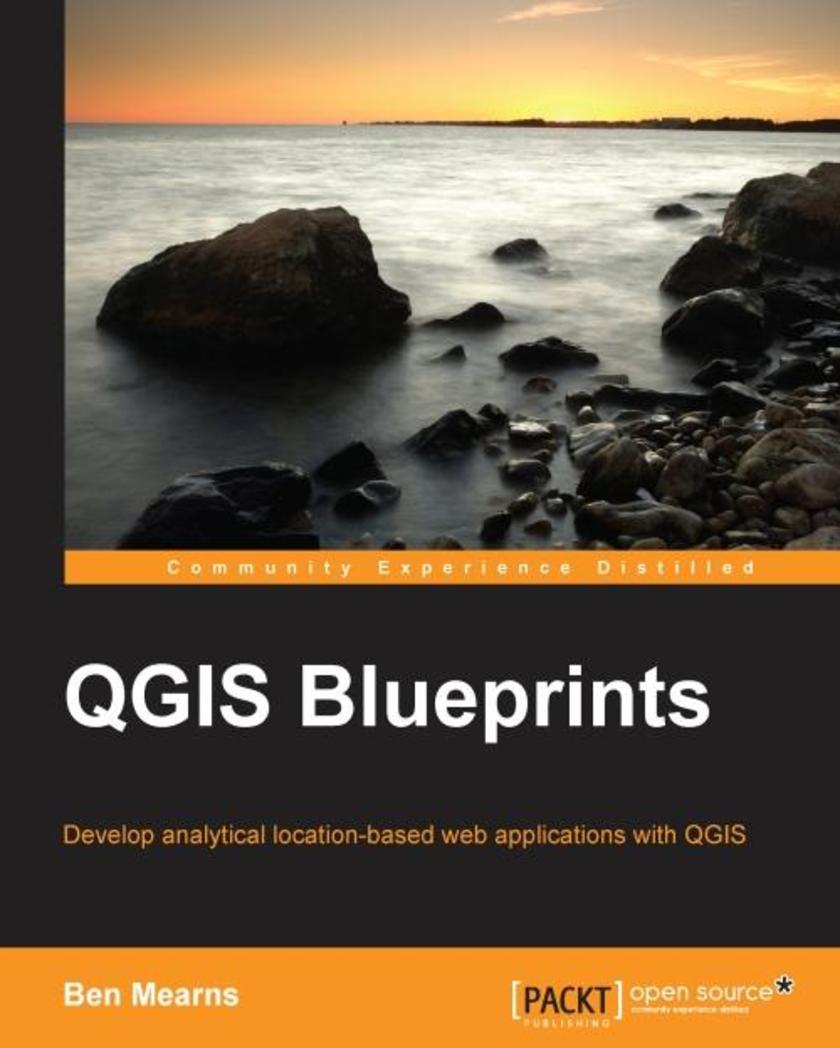
QGIS Blueprints
¥90.46
Develop analytical location-based web applications with QGIS About This Book Tame geographic information workflows with QGIS blueprints for smart web applications Create geographic web applications using QGIS and free/open source software Blueprints provide real-world applications covering many use cases Who This Book Is For This book encompasses relatively experienced GIS developers who have a strong grounding in the fundamentals of GIS development. They will have used QGIS before, but are looking to understand how to develop more complex, layered map applications that expose various data sets, utilize different visualizations, and are consumable (usable) by end users What You Will Learn Review geographic information principles and the application of these principles in the QGIS free/open source ecosystem Perform advanced analysis with site selection, hydrologic, and topological networks Build performant web applications by tile caching and generating static assets Provide collaborative editing capabilities for your team or community Develop custom and dynamic analysis and visualization capabilities Select the best components from desktop and web, for your use case Integrate it with social media and crowdsourcing In Detail QGIS, the world’s most popular free/open source desktop geographic information system software, enables a wide variety of use cases involving location – previously only available through expensive specialized commercial software. However, designing and executing a multi-tiered project from scratch on this complex ecosystem remains a significant challenge. This book starts with a primer on QGIS and closely related data, software, and systems. We’ll guide you through six use-case blueprints for geographic web applications. Each blueprint boils down a complex workflow into steps you can follow to reduce time lost to trial and error. By the end of this book readers should be able to build complex layered applications that visualize multiple data sets, employing different types of visualization, and give end users the ability to interact with and manipulate this data for the purpose of analysis. Style and approach This is a comprehensive guide to the application of QGIS and free/open source software in creating web applications from analysis. Step-by-step blueprints guide the reader through analytical and web development topics and designs.

Getting Started with Python and Raspberry Pi
¥71.93
Learn to design and implement reliable Python applications on the Raspberry Pi using a range of external libraries, the Raspberry Pis GPIO port, and the camera module About This Book Learn the fundamentals of Python *ing and application programming Design user-friendly command-line and graphical user interfaces A step-by-step guide to learning Python programming with the Pi Who This Book Is For This book is designed for those who are unfamiliar with the art of Python development and want to get to know their way round the language and the many additional libraries that allow you to get a full application up and running in no time. What You Will Learn Fundamentals of Python applications Designing applications for multi-threading Interacting with electronics and physical devices Debugging applications when they go wrong Packaging and installing Python modules User interface design using Qt Building easy to use command-line interfaces Connecting applications to the Internet In Detail The Raspberry Pi is one of the smallest and most affordable single board computers that has taken over the world of hobby electronics and programming, and the Python programming language makes this the perfect platform to start coding with. The book will start with a brief introduction to Raspberry Pi and Python. We will direct you to the official documentation that helps you set up your Raspberry Pi with the necessary equipment such as the monitor, keyboard, mouse, power supply, and so on. It will then dive right into the basics of Python programming. Later, it will focus on other Python tasks, for instance, interfacing with hardware, GUI programming, and more. Once you get well versed with the basic programming, the book will then teach you to develop Python/Raspberry Pi applications. By the end of this book, you will be able to develop Raspberry Pi applications with Python and will have good understanding of Python programming for Raspberry Pi. Style and approach An easy-to-follow introduction to Python *ing and application development through clear conceptual explanations backed up by real-world examples on the Raspberry Pi.

Dart By Example
¥80.65
Design and develop modern web applications with Google's bold and productive language through engaging example projects About This Book Full of engaging and varied example projects to equip you to build your own web applications Learn the Dart language and key libraries Productively create fast and reliable web applications Who This Book Is For If you are a front- or back-end web developer who is looking to build complex full-featured web applications without the quagmire of disconnected JavaScript frameworks, this book is a practical walkthrough of substantial applications that will have you and your team coding Dart in a productive manner. This book will give you a compiled, optional typed, scalable environment to rapidly develop applications. As Dart was designed to be familiar, any developer with even a small amount of knowledge of JavaScript or another programming language will be at home with the language immediately and will be coding quickly. What You Will Learn Master the core Dart language, type system, and key development tools Connect to existing web services, process JSON, and create your own framework for the data display Run and debug the Dart server and web applications and compile them in JavaScript Handle form data and encryption Build and deploy server applications on the major OSes and implement the REST API Work with PostgreSQL—an industry standard relational database system Create robust applications with unit tests, documentation, and diagnostic logging Develop command-line applications, and explore the key data structures and libraries In Detail Designed to create next generation apps, Google’s Dart offers a much more robust framework and also supersedes JavaScript in several aspects. Familiar yet innovative, compact yet scalable, it blows away the accumulated JavaScript legacy limitations. Dart was designed for great tool-ability and developer productivity, allowing you to create better application faster than before. Google chose it for their billion dollar advertising business and you have its power for your projects too. This book will introduce you the Dart language starting from its conception to its current form, and where it headed is through engaging substantial practical projects. You will be taken through building typical applications and exploring the exciting new technologies of HTML5. With example code projects such as a live data monitoring and viewing system, a blogging system, a slides presentation application, and more, then this book will walk you through step by step through building data-driven web applications with ease and speed. Style and approach A varied collection of compelling practical Dart projects that are developed progressively with full explanations of concepts and implementation. Each project introduces features of the language and environment, demonstrating how Dart can be used in rich structured web applications.

Groovy for Domain-specific Languages - Second Edition
¥90.46
Extend and enhance your Java applications with domain-specific *ing in Groovy About This Book Build domain-specific mini languages in Groovy that integrate seamlessly with your Java apps with this hands-on guide Increase stakeholder participation in the development process with domain-specific *ing in Groovy Get up to speed with the newest features in Groovy using this second edition and integrate Groovy-based DSLs into your existing Java applications. Who This Book Is For This book is for Java software developers who have an interest in building domain *ing into their Java applications. No knowledge of Groovy is required, although it will be helpful. This book does not teach Groovy, but quickly introduces the basic ideas of Groovy. An experienced Java developer should have no problems with these and move quickly on to the more involved aspects of creating DSLs with Groovy. No experience of creating a DSL is required. What You Will Learn Familiarize yourself with Groovy *ing and work with Groovy closures Use the meta-programming features in Groovy to build mini languages Employ Groovy mark-up and builders to simplify application development Familiarize yourself with Groovy mark-up and build your own Groovy builders Build effective DSLs with operator overloading, command chains, builders, and a host of other Groovy language features Integrate Groovy with your Java and JVM based applications In Detail The times when developing on the JVM meant you were a Java programmer have long passed. The JVM is now firmly established as a polyglot development environment with many projects opting for alternative development languages to Java such as Groovy, Scala, Clojure, and JRuby. In this pantheon of development languages, Groovy stands out for its excellent DSL enabling features which allows it to be manipulated to produce mini languages that are tailored to a project’s needs. A comprehensive tutorial on designing and developing mini Groovy based Domain Specific Languages, this book will guide you through the development of several mini DSLs that will help you gain all the skills needed to develop your own Groovy based DSLs with confidence and ease. Starting with the bare basics, this book will focus on how Groovy can be used to construct domain specific mini languages, and will go through the more complex meta-programming features of Groovy, including using the Abstract Syntax Tree (AST). Practical examples are used throughout this book to de-mystify these seemingly complex language features and to show how they can be used to create simple and elegant DSLs. Packed with examples, including several fully worked DSLs, this book will serve as a springboard for developing your own DSLs. Style and approach This book is a hands-on guide that will walk you through examples for building DSLs with Groovy rather than just talking about "metaprogramming with Groovy". The examples in this book have been designed to help you gain a good working knowledge of the techniques involved and apply these to producing your own Groovy based DSLs.

Learning Unity iOS Game Development
¥80.65
Build exciting games with Unity on iOS and publish them on the App Store About This Book Take advantage of Unity 5's new tools to create a fully interactive mobile game Learn how to connect your iTunes developer account and use Unity 5 to communicate with it Use your Macintosh computer to publish your game to the App Store Who This Book Is For This book is for iOS developers who want to learn how to build games with Unity for the iOS platform. Some prior experience in game development would be useful. What You Will Learn Create your own iTunes Connect Developer account and create an app within it Set up iTunes Game Center features in iTunes Connect so you can use them within Unity 5 Construct a game using C# that allows users to interactively control the game character Use Unity 5's editor window to create a custom editor tool specific for the game made in the book Store and keep track of data so the player is able to collect in-game pick-ups that can be used to purchase in-game goods Use all game features so the player is able to fully navigate menus between the front menu and in the game state Make, test, and finally release builds so you can play on your device and then submit the game to Apple for review In Detail Over recent years, the market for mobile game development using Unity has grown multi-fold with an overwhelming 600 million gamers playing games developed using Unity engine. The newly launched Unity 5 offers a wide range of dedicated and powerful tools for iOS developers who intend to follow the basics and gradually elevate their skills to revolutionize the way they design and publish games for the App Store. From beginners, to those who are experienced making video games, this book goes through the steps of using Unity 5 to make a game from the ground up and setting the game up with iTunes Game Center features. The book begins with an introduction to setting up an iTunes Connect developer account, this will allow you to use Unity to its full potential with iOS. You will create a new app in iTunes Connect with the settings for Apple approval. You will learn, in detail, how to use Unity 5 and the programming language C# to make a fully interactive game that keeps track of player progress, Game Center Leaderboards, and Achievements, as well as displaying iAds and offering In-App purchases. Moving on, you’ll discover how to create development and release builds, enabling you to test the game on your device before finally submitting the game for Apple’s approval. By the end of the book, you will have a complete understanding of how iTunes and Unity can be used in combination to build and publish a fully interactive and reliable game to the App Store. Style and approach This is a step-by-step guide that covers the fundamentals of gaming and reveals the secrets of building and monetizing games for the iOS platform.
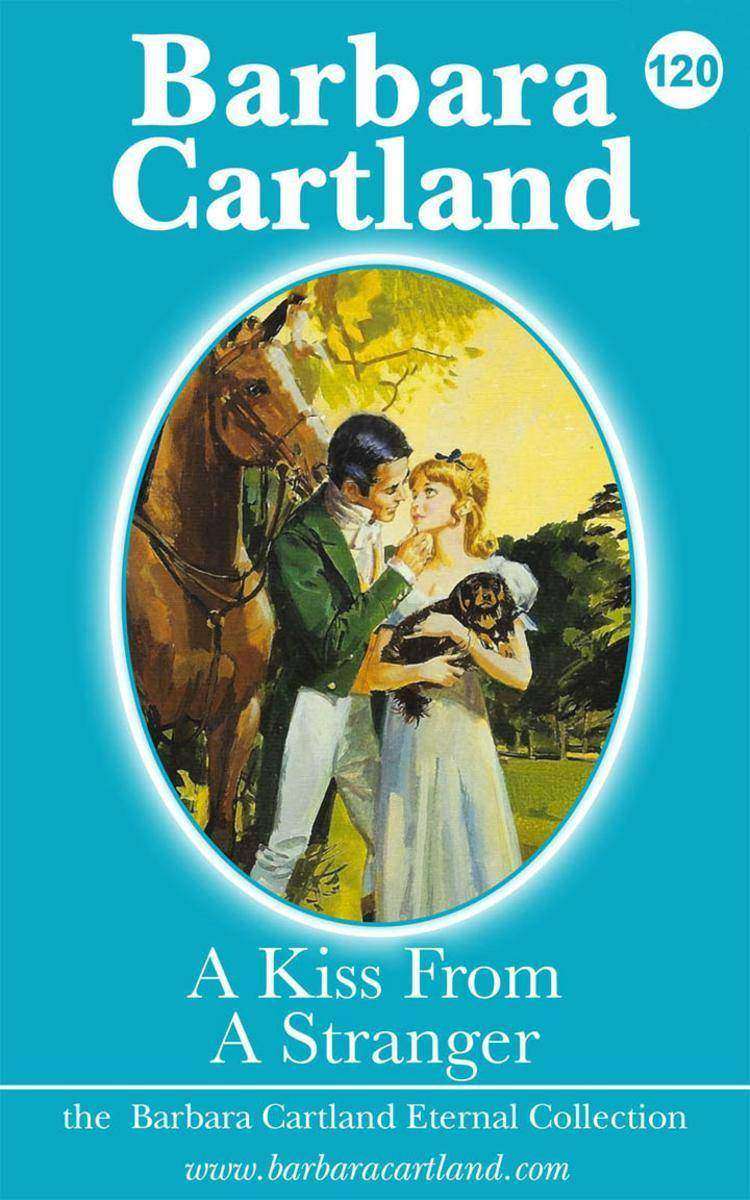
Kiss from a Stranger
¥24.44
Horrified when her beloved dog, Rufus, is caught in a cruel snare while out walking in the estate of Arrow Castle, local Parson’s daughter Shenda is at first relieved when a handsome stranger comes to poor Rufus’s rescue and then at once she is abashed and confused when he claims a kiss – Shenda’s very first – as his reward. But then she is told that her father has been killed by a savage bull and that she must leave the family’s Vicarage forthwith. Penniless Shenda is obliged to take a job at Arrow Castle as a seamstress, where she stumbles across a letter from one of Napoleon Bonaparte’s spies to Society beauty Lucille Gratton, ‘the most beautiful Lady in England’, who is staying at The Castle. Reporting the discovery to the Earl, she finds that he is no other than her ‘gentleman stranger’ and just as she realises that she is falling in love with the heroic Earl of Arrow, she is embroiled in a counter-espionage plot that puts her young life – and her love for the Earl – in deadly peril.
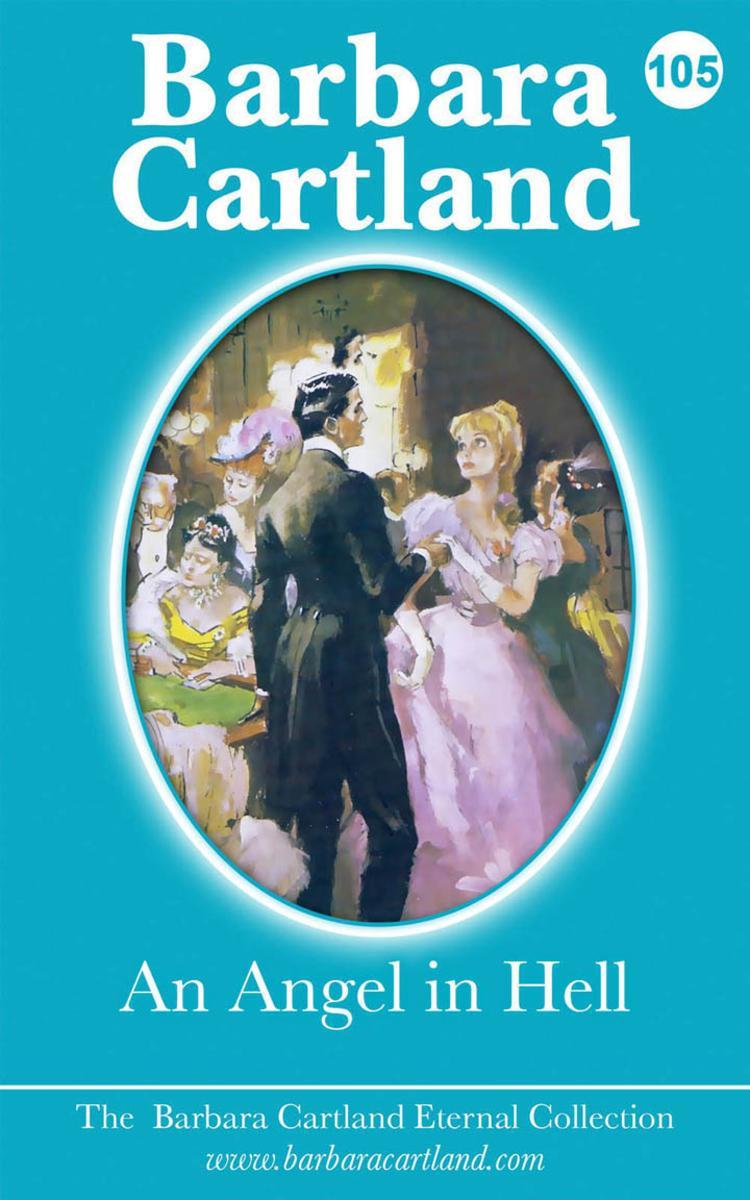
An Angel In Hell
¥24.44
After years of caring for her ailing father, the Earl of Medwin, the ethereally beautiful young Lady Ancella Winn is pale, drawn and exhausted now that he has died and she is devastated. Worse still, she has nowhere to go, except for the home of her strait-laced and disapproving aunts. So when family friend and doctor, Sir Felix Johnson, suggests that it would be good for her health to travel to the French Riviera to work as the nurse-companion to an ageing Russian Princess, she nervously agrees. Although her new employer is difficult and demanding, Ancella is bewitched, first by the beauty of the C?te d’Azur and then by the Princess’s ineffably handsome son, Prince Vladimer. Caught up in the glamour of the Monte Carlo Casino, the den of iniquity against which her aunts had warned her in no uncertain terms, it seems that she has won the Prince’s heart as the feckless aristocrats around her lose fortunes at Roulette and Baccarat. But then to her horror her hopes of the love she has always dreamt about are dashed when it she finds that Prince Vladimer has betrayed her with the grasping but alluring Marchioness of Chiswick.




 购物车
购物车 个人中心
个人中心



